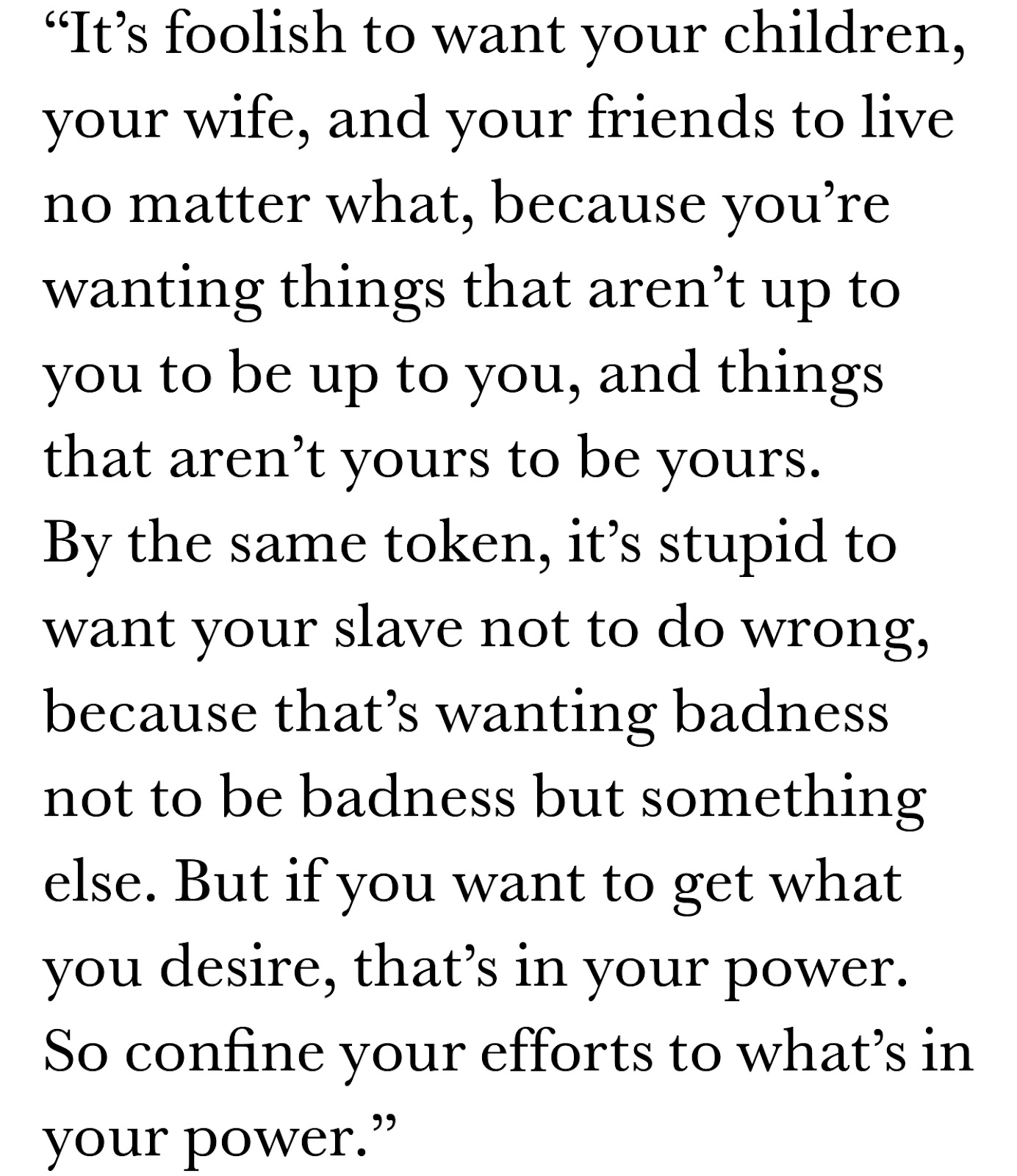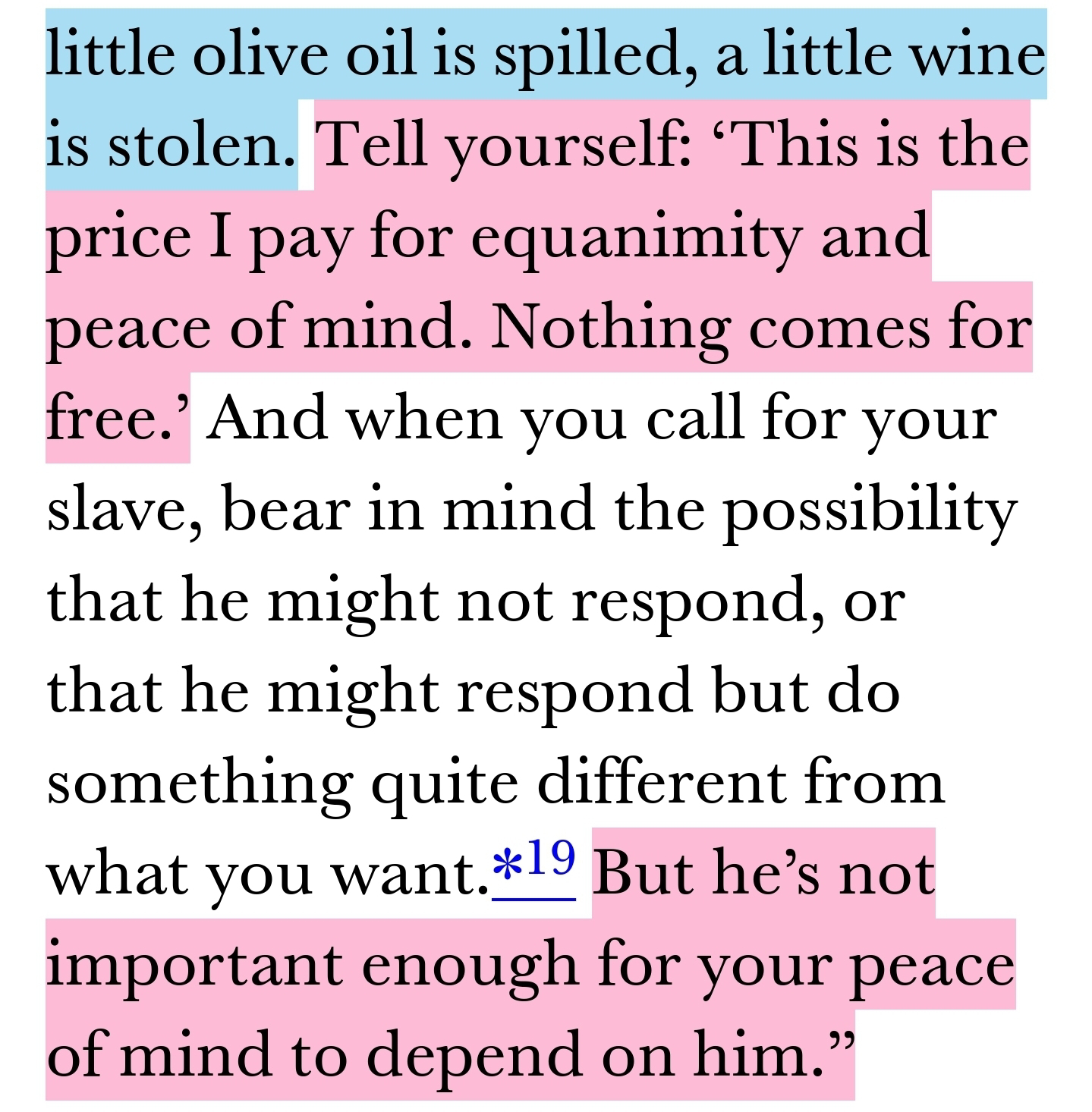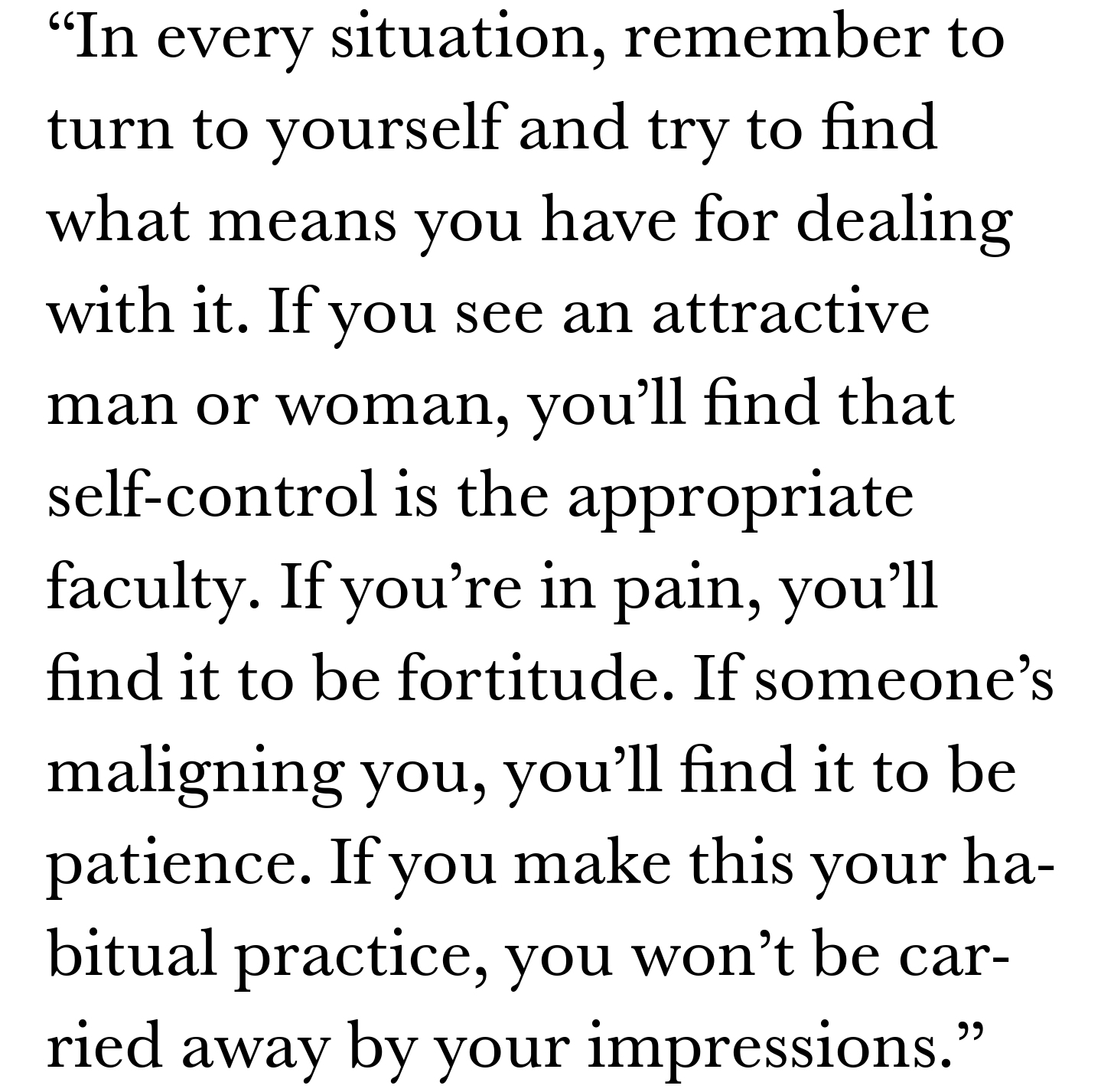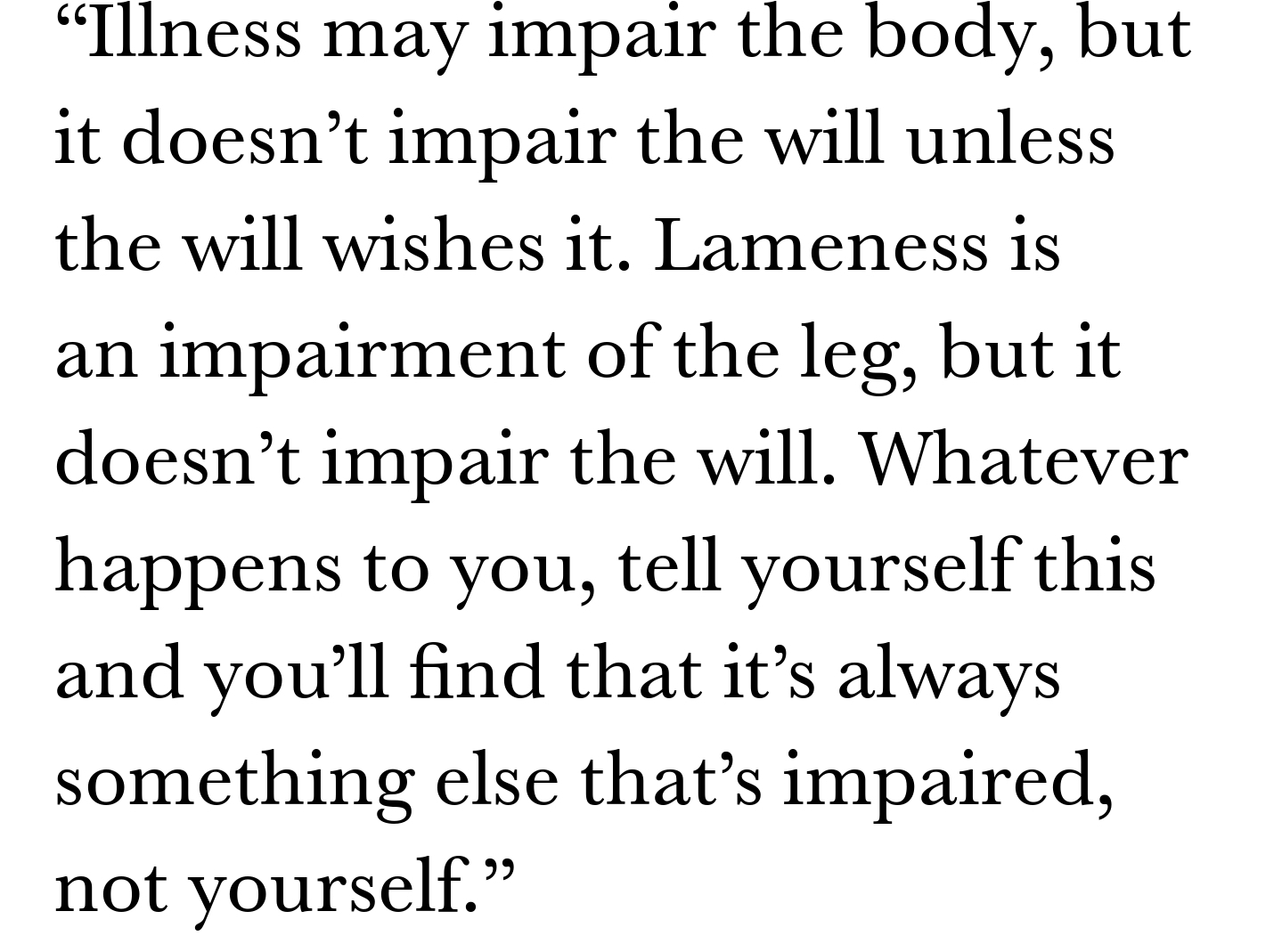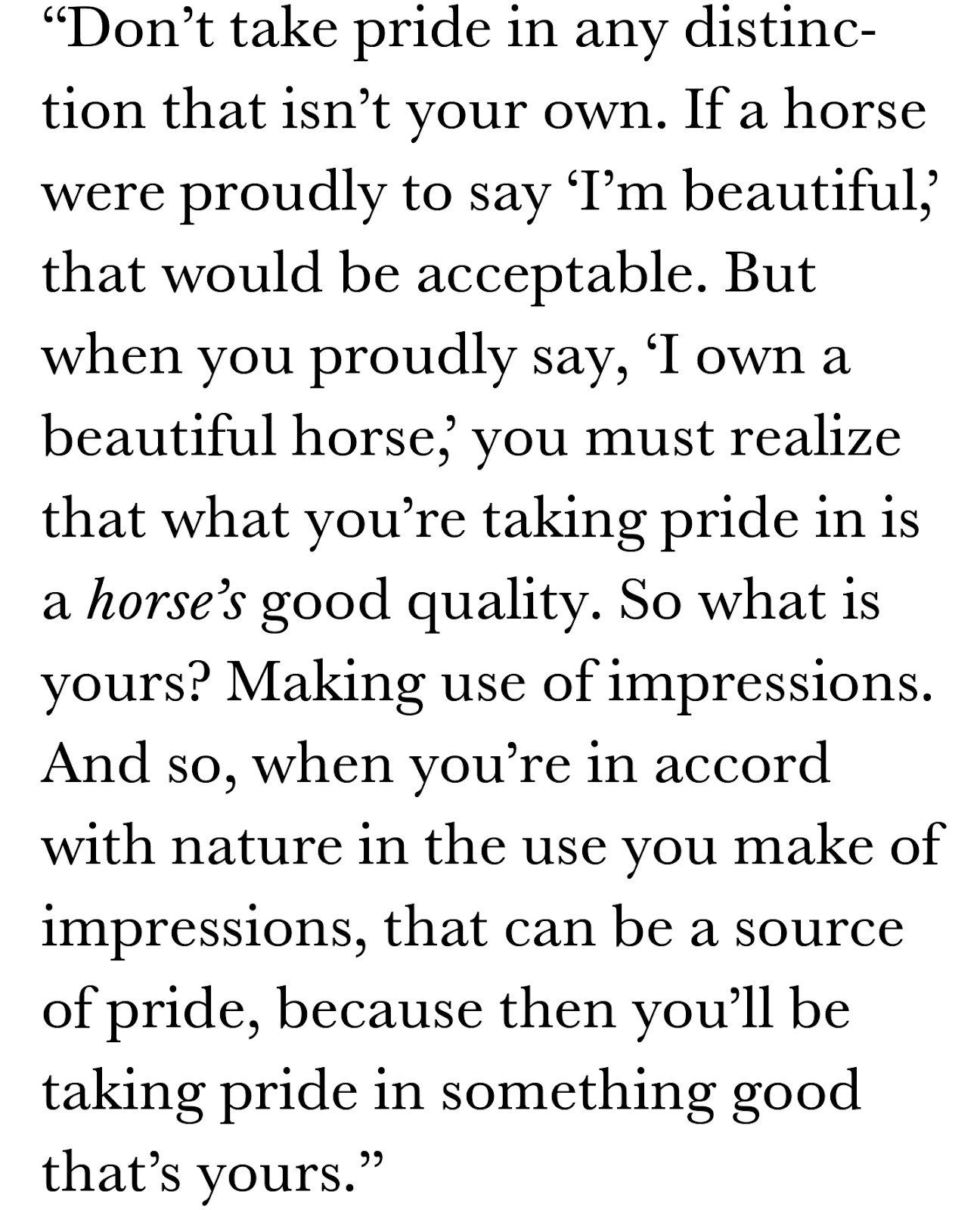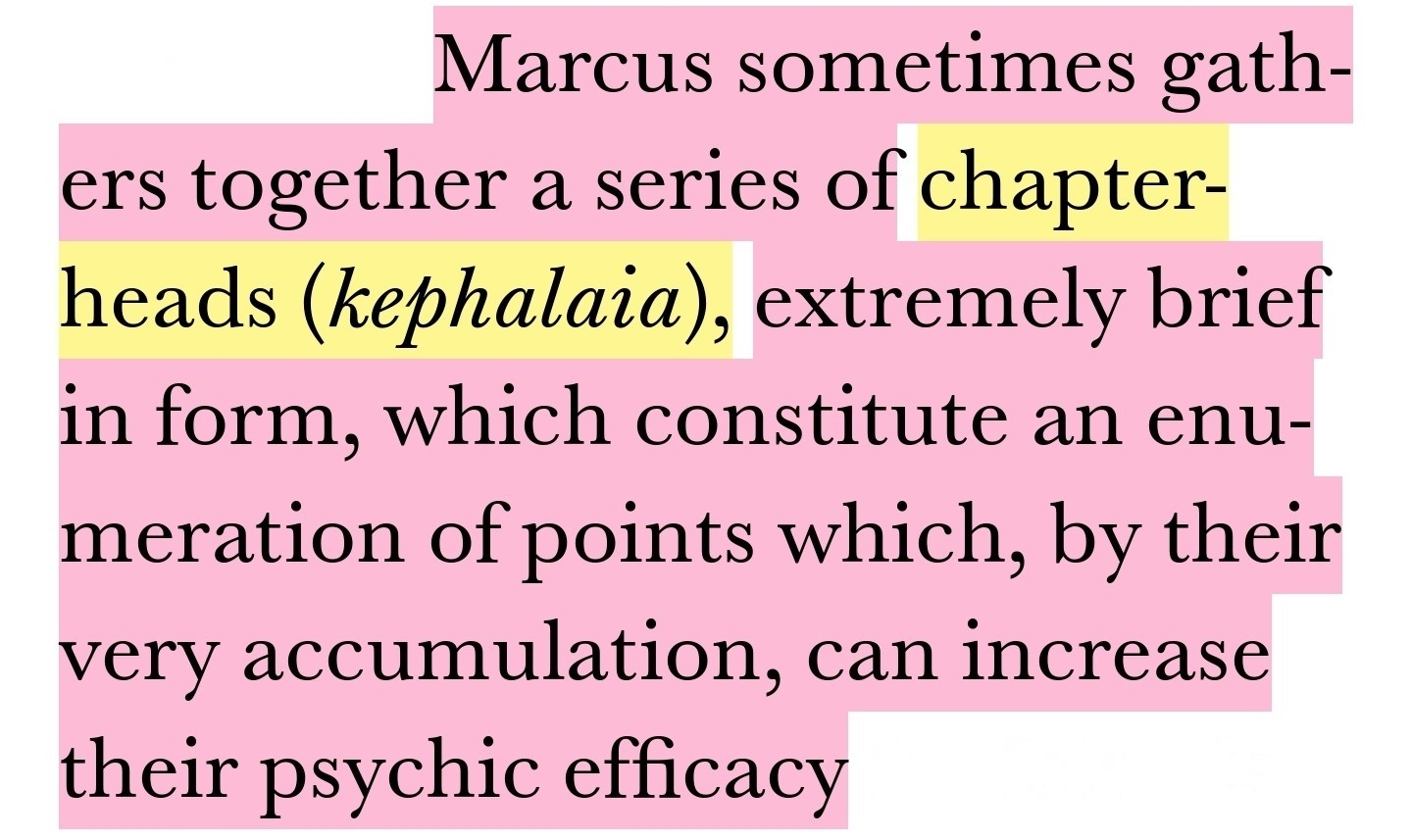240229 What I learned in my studies this morning 4

Today's Meditation(s): Stoics may feign emotions they do not feel to achieve a goal. Outwardly mourning with a friend while inwardly remaining untraumatized. Pretending anger when it's necessary to spur to action a person who ignores other motivational techniques. It's a matter of keeping my emotions in check. Simulating anger without becoming angry is a tricky proposition. It's so easy to forget, even for just a second, and experience the ire rather than merely imagining it. That's all that may be needed to dump some adrenaline and encourage the passion rather than control it. Very tricky to pull off in real life, for me anyway. I rarely attempt it because I too often fail to keep my actions and my passions separate. I risk all the vicious effects of unimpeded anger had I let my passions run free in the first place. So this only works when I know ahead of time and can prepare for the role, so to speak. Premeditatio Malorum helps even when it's a scene of fa...






